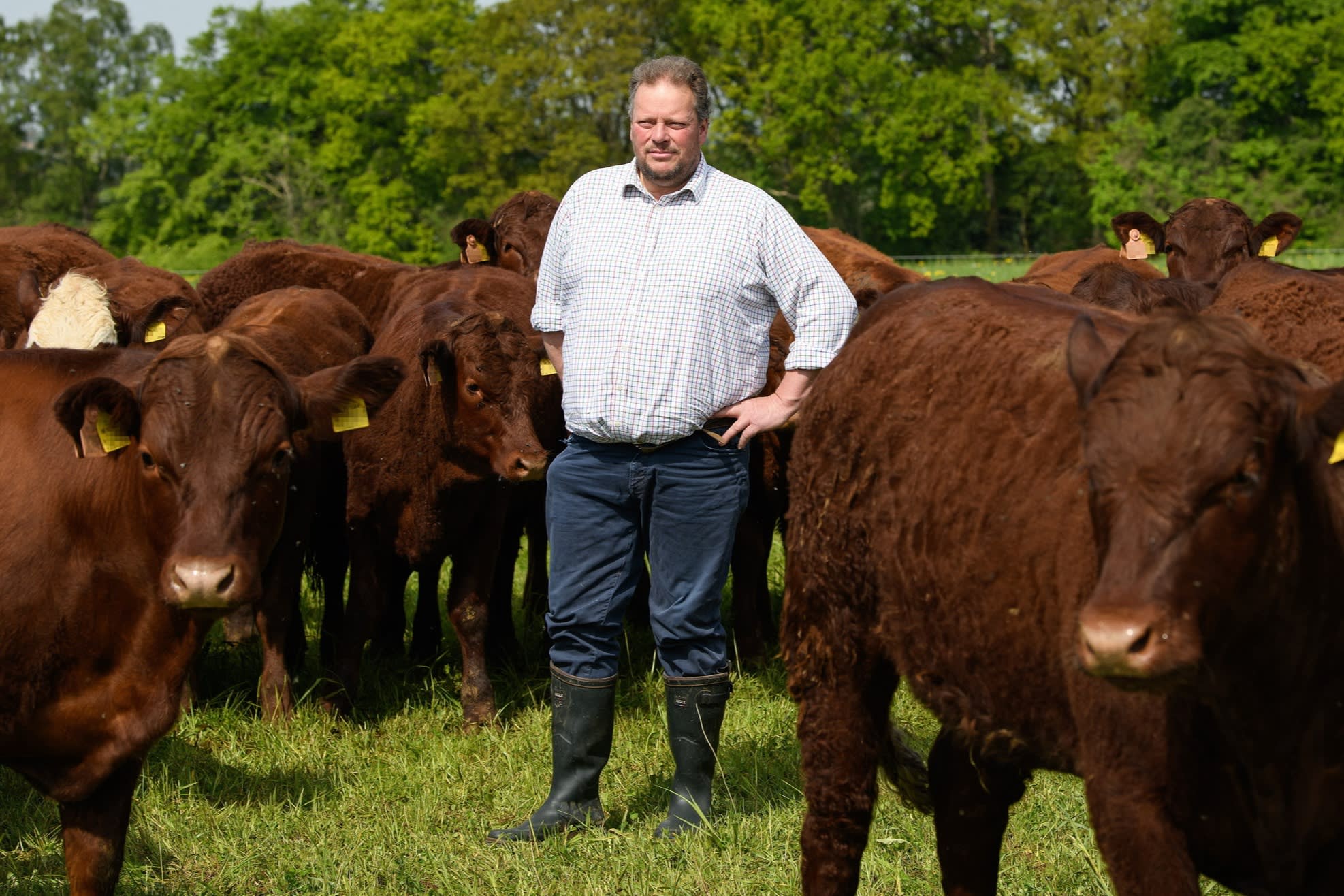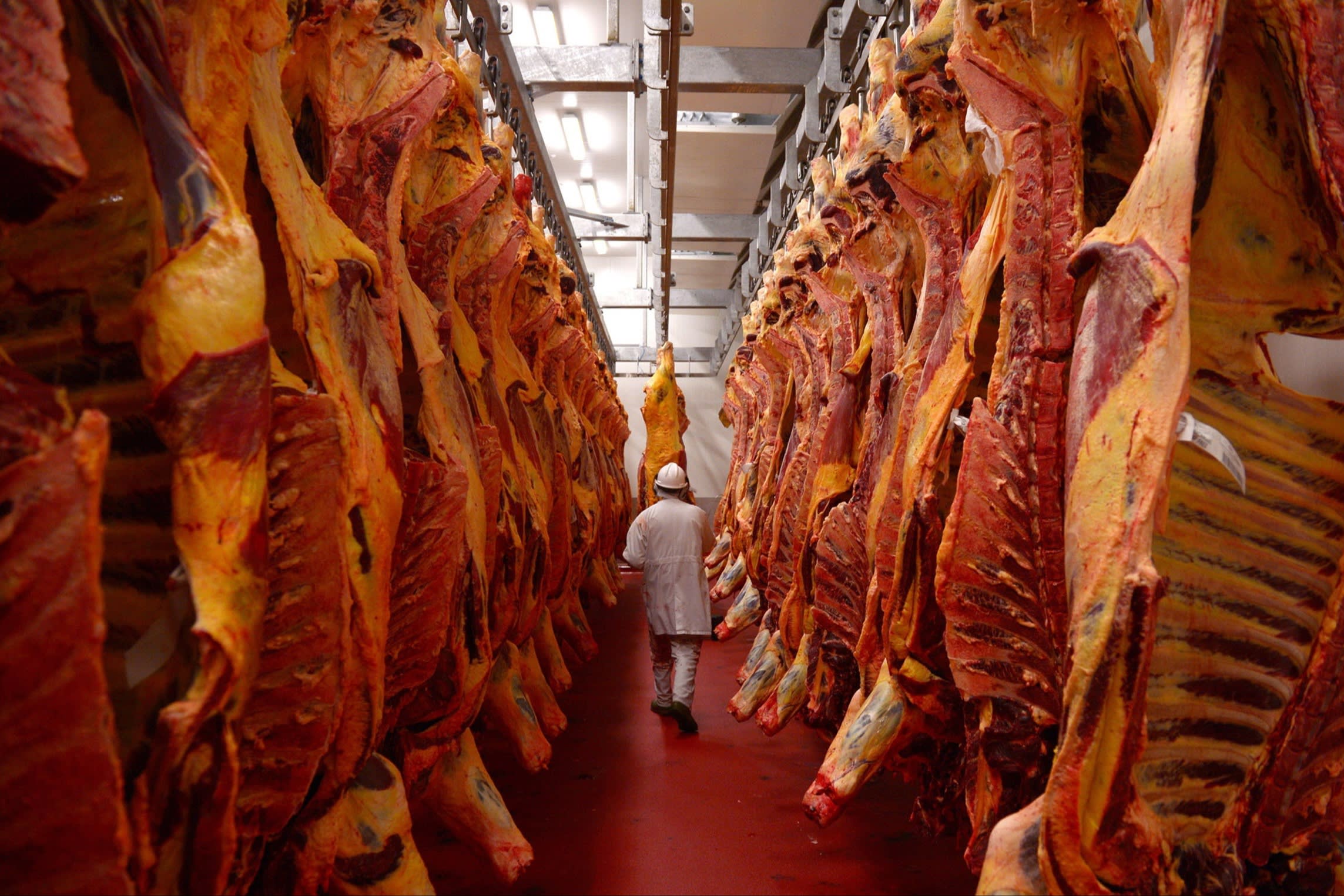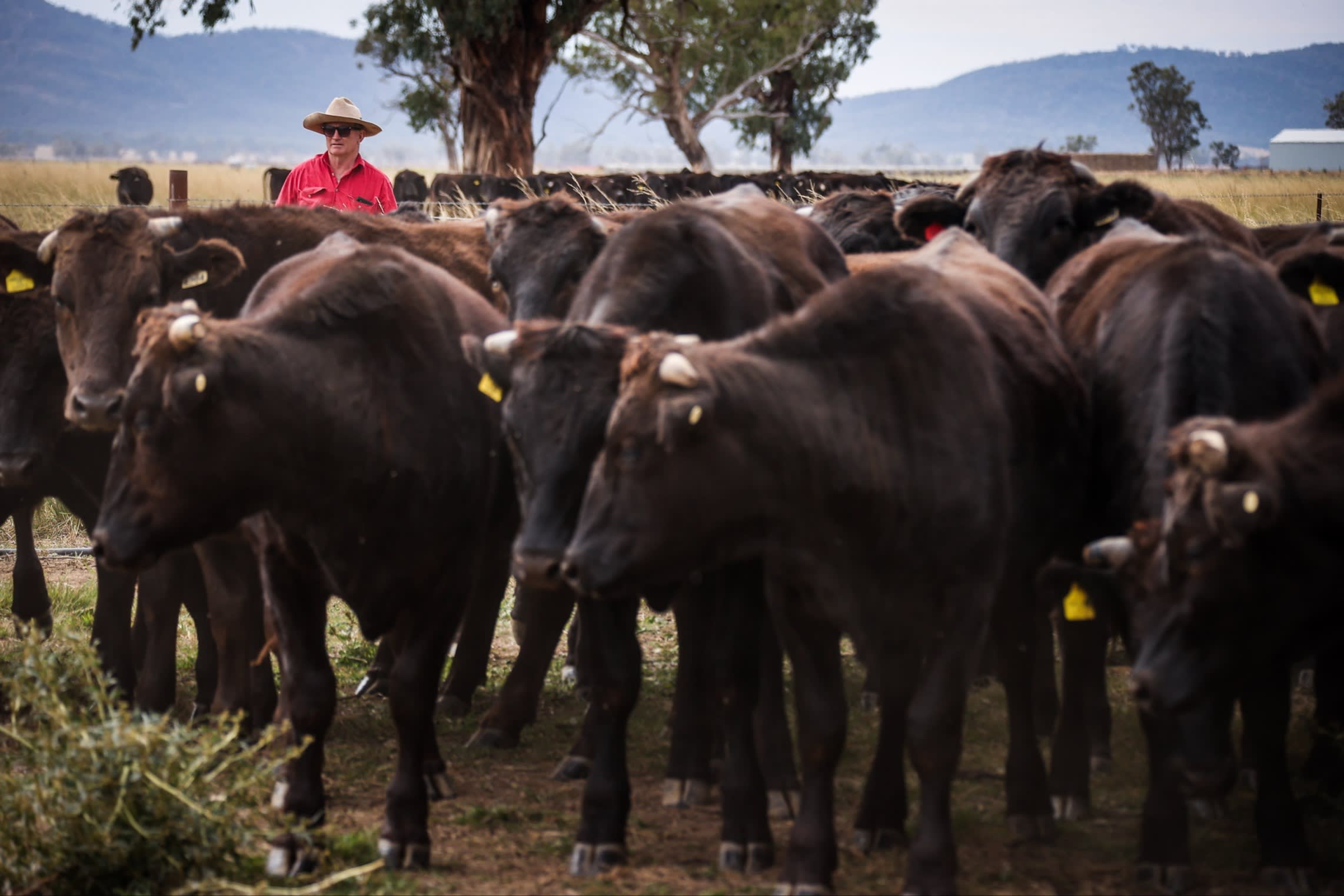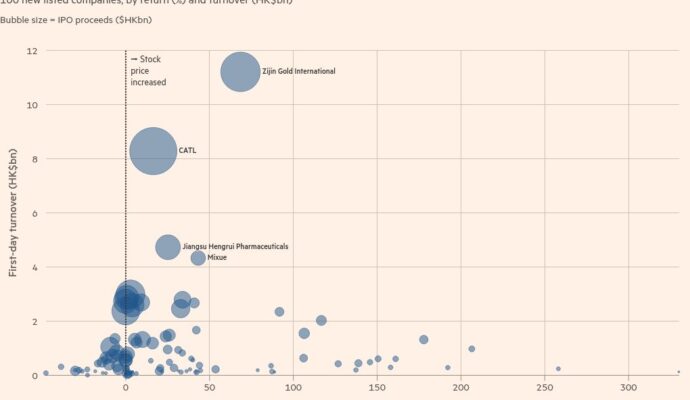An influx of Australian steak into the UK is undercutting domestic production, British farmers have warned, as the livestock sector starts to feel the effects of post-Brexit trade deals.
A sharp uptick in imports of prime Australian cuts such as strip loin and rib was eroding confidence in the livestock sector, the National Farmers’ Union and National Beef Association told the Financial Times.
“These high-value cuts have the most distorting impact upon the UK beef market,” said David Barton, NFU chair of the national livestock board, because they are sold at a lower price than British cuts.
In the first five months of 2025 Australia exported 6,503 tonnes of beef to the UK, more than in the whole of 2024, according to the Australian Department of Agriculture, Fisheries and Forestry.
The uptick follows a free trade agreement struck between London and Canberra, which came into force in 2023 and gave Australia access to a duty-free quota of 35,000 tonnes. Australia had previously exported modest amounts of beef to the EU, including the UK, typically under a quota arrangement paying a 20 per cent tariff rate.
Some 95 per cent of imports in the first two months of the year were made up of fresh and boneless, high-end cuts, according to analysis by the UK Agriculture and Horticulture Development Board, a levy board that supports farmers.

Neil Shand, National Beef Association chief executive, said: “We need imported product when we’re not self-sufficient. But what we don’t like is putting it on the shelf at a lower price than our product.”
Industry confidence was at “rock bottom” because of current government policy, he added, referring to recent changes to inheritance tax rules for farmers and the reduction of farm subsidies.
The UK imported 5,515 tonnes of beef from Australia and 4,110 tonnes from New Zealand in 2024, according to data from HM Revenue & Customs.
The figures represent increases of 534 per cent and 339 per cent, respectively, compared with 2022, before free trade agreements agreed with the countries entered into force.
While volumes have jumped dramatically, Australia is still significantly under utilising its access to UK markets, shipping only 15 per cent of its 43,300 tonne quota in 2024, according to the AHDB.
Under the trade agreement, the quota will increase each year, reaching 110,000 tonnes by 2033.
Farming groups have been sounding the alarm after seeing more beef from overseas on the shelves of major UK supermarkets, despite retailers’ commitments to source exclusively British prime cuts. The majority of the recent imports from Australia were going into food service, the NFU said.
“We’re disappointed that retailers have broken their promise,” Shand said.
The NFU, meanwhile, claimed that Australian beef was produced to a lower standard than British beef, citing stricter UK rules on how long live cows can be transported before they require rest time.

The surge in high-quality beef sales to the UK has helped restore historic trade ties between Australia and the UK, according to Andrew Cox, general manager of international markets at Meat & Livestock Australia, an industry body.
“Before 1973, the UK was our largest agricultural export market,” he said. “It’s a ready-made market.”
Despite the increase, Cox said Australian cuts amounted only to “a small part” of overall British beef consumption and that it was unlikely that the quota ceiling of 110,000 tonnes would be hit in the short term.
Australian beef exports have surged to record levels in recent months, including to the US, where domestic supply has been constrained by drought.

Barton of the NFU said the prospect of increased beef imports because of a separate trade deal struck by Washington and London earlier this year was adding to anxiety among farmers.
Under the accord that was agreed in May, the US was granted tariff-free access to the UK beef market for 13,000 tonnes of hormone-free beef. Previously, US beef exports to the UK were subject to a 20 per cent tariff within a quota of 1,000 metric tonnes.
The UK’s beef herd has been in decline for 10 years as farmers have struggled with the removal of the EU subsidies, as well as a wider crisis of profitability in the farming sector. UK beef production is expected to fall 5 per cent in 2025 compared with last year, according to the AHDB.
The UK Department for Environment, Food and Rural Affairs said: “Our commitment to farming and food security is steadfast and farming profits in the UK increased by £1.6bn last year.
“We are slashing costs and red tape for food producers to export to the EU and thanks to our trade deal with the US, for the first time ever, UK beef farmers will have exclusive access to the world’s largest consumer market.”

